
Neem & Tea Tree Body & Hair Shampoo
- Out Of Stock
 At Chagrin Valley Soap we know that vegan skincare is an essential component of the vegan lifestyle.
At Chagrin Valley Soap we know that vegan skincare is an essential component of the vegan lifestyle.
Our vegan skincare products are made from ingredients that do not come from animals, animal-derived products, or animal by-products.
Also, all of our natural soap, shampoo bars, and personal care products are certified cruelty-free by Leaping Bunny.
At Chagrin Valley Soap & Salve:
Below you can browse our selection of handcrafted Vegan Skin and Hair Care Products. We have separated the products into the categories.
Since we proudly list every ingredient in all of our products, you can also scan the ingredient list for each product.
If you are looking for one specific type of product like a soap or a lip balm, on the left side of any product collection page there are filters to help you narrow down your product search. Under "ingredient preference" you can search for "vegan" products.
Please double-check the ingredients on the product web pages, we sometimes change recipes!






















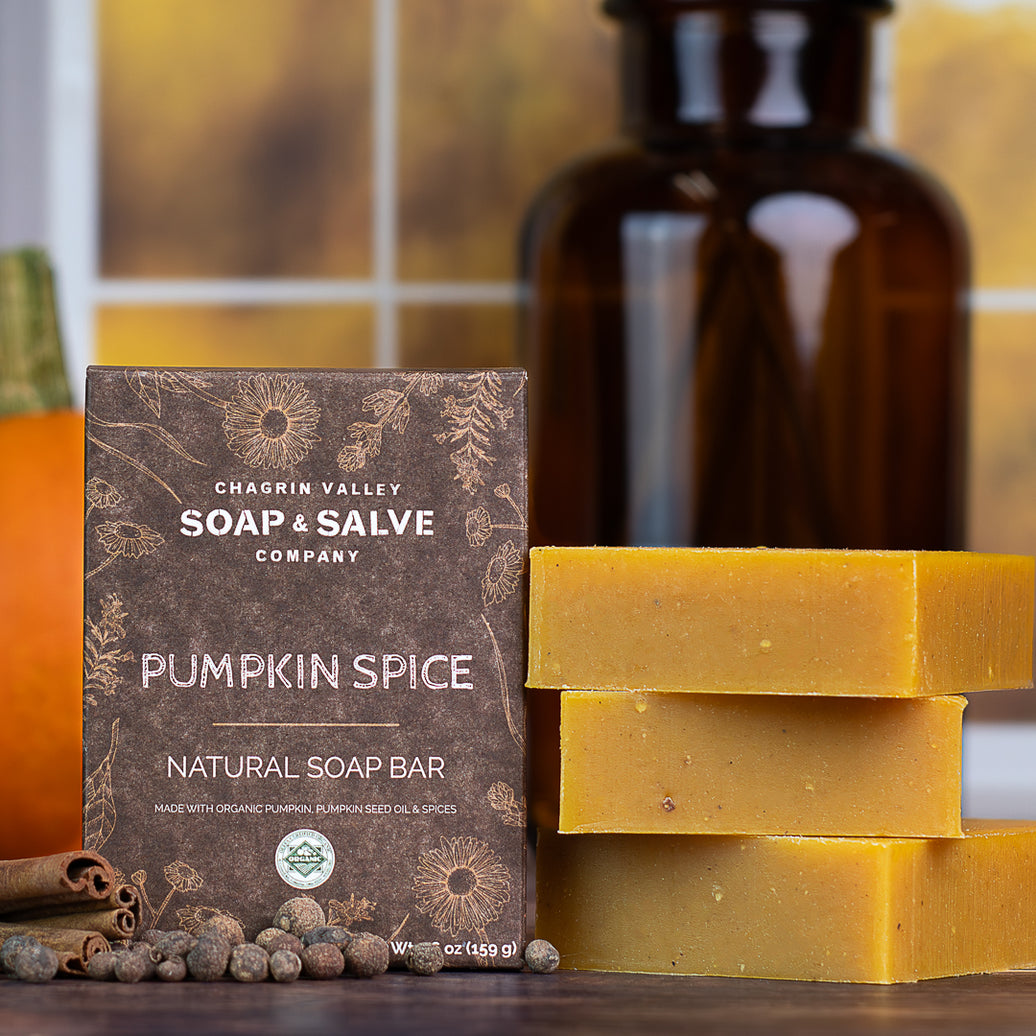


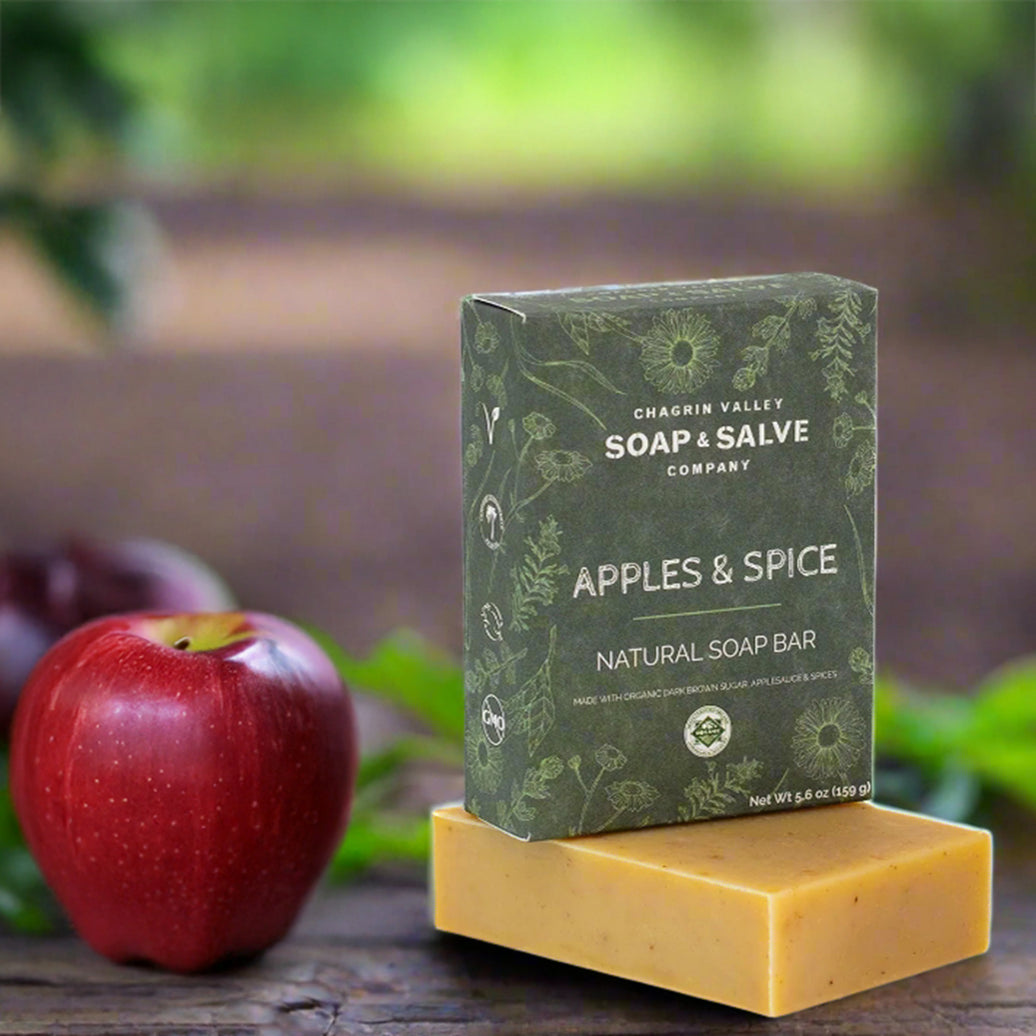











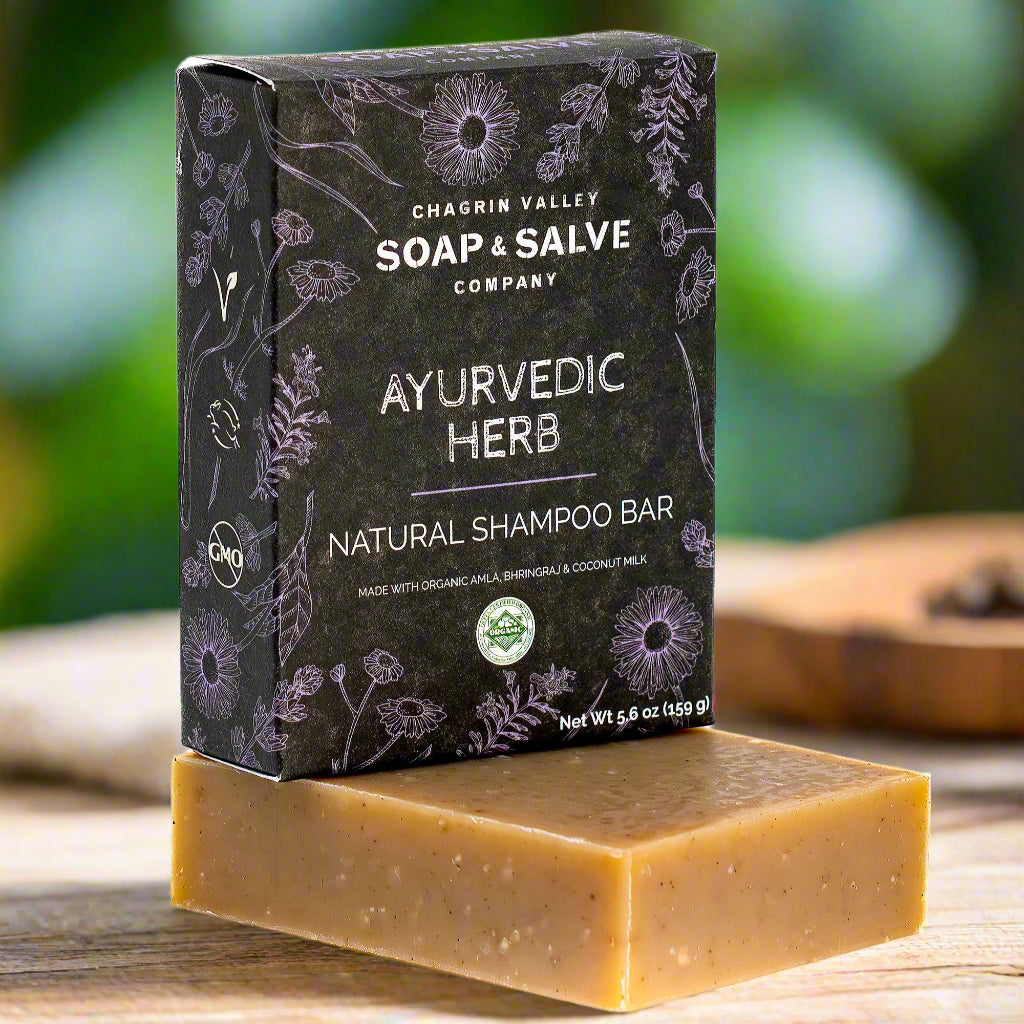















ALL of the facial products in the following categories are Vegan:
Vegan facial creams and scrubs are shown on the scroll bar below.





ALL of the products in the following Bath & Body and Aromatherapy categories are Vegan:
Vegan moisturizers and body scrubs are shown on the scroll bar below.




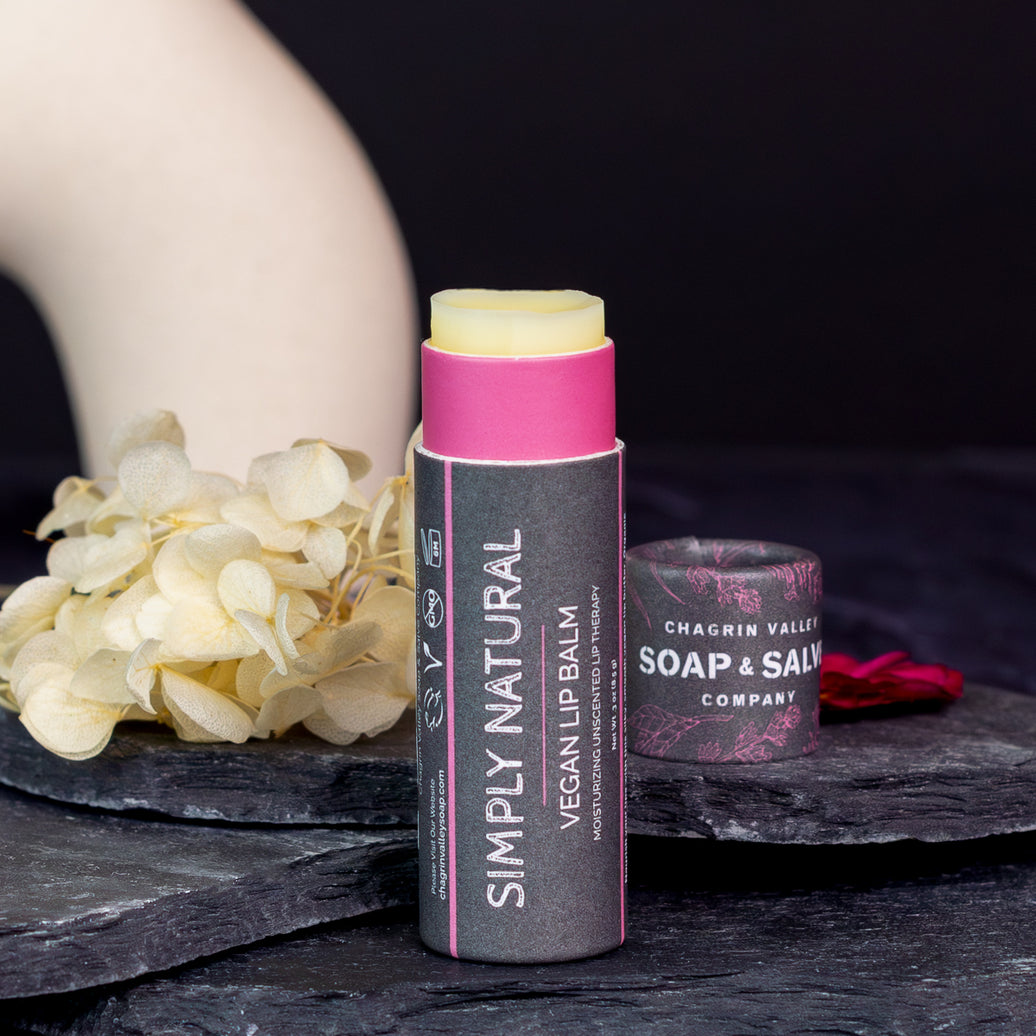


ALL of the products in the following hair care categories are Vegan:
Vegan hair conditioners are shown on the scroll bar below.























Every piece of good soap deserves to be used.
When we cut our natural soap bars, small pieces remain — and rather than letting a single ounce go to waste, we gather them into our Scrap Sacks.
Same carefully crafted soap. No waste. Less packaging. A thoughtful savings for you and for the planet.
A Scrap Sack includes ONE POUND of soap or shampoo bar odds and ends packaged in a recyclable kraft paper bag made from recycled paper.
Your scrap bag will contain slivers, chunks, cracked bars, and odd-sized end pieces. Scents and colors may be faded, and they may not be pretty, but you will get all the goodness of our natural handmade soap at real savings!
We save every leftover piece of soap from our cutting process, and when we’ve gathered enough, we package them up into our Scrap Sacks. At various times of the year, we release these special bundles. The type of scrap sack sale depends on the amount of scrap available at the time.
Although we will have over 1,000 scrap sacks available, they usually sell out within the first few hours.
We usually have scrap sack sales 2 to 3 times a year.
The dates of our scrap sack sales will be announced in our newsletter. You can sign up for our newsletter at the bottom of this page.
Please read the newsletter carefully to learn the Date and Time of the Scrap Sack Sale.
The cost for each one-pound sack is $13.95
Because scrap sacks are made from the limited pieces left after our soap and shampoo production — and because they’re always in high demand — we’ve put a few guidelines in place to help make them available to as many customers as possible.
We offer our Scrap Sack sales when we have over 1000 scrap sack bags of soaps and shampoos available. As a result, there are no set dates throughout the year. These sales usually occur two or three times each year.**
Mini Scrap Sack sales occur periodically when we have a large collection of scrap from just a few soaps or shampoos. During these mini sales, there will be a large number of only a few varieties of soap and/or shampoo available.**
**Usually, you are able to choose which type of soap or shampoo scrap bag you would like to purchase; however, sometimes we only have a few bags of individual soap or shampoo scrap, so we have created Mystery Scraps Sacks.
In this short video, we share some snippets of how our one-pound scrap sacks come to be. Watch how we save our awesome soap "scrap" and package it especially for you.
Click here to see our nylon soap sacks
Monday - Thursday: 9:30am - 4:30pm EST
Friday: 9:30am - 3:00pm EST
During the Summer months, we may be closed on some Fridays!
Whenever our business office is closed you can always place orders online 24 hours a day, 7 days a week.
Business Office Phone: (440) 248-7627
If the answering machine picks up during business hours, we are probably making soap... so please call again!
If you have placed a pick-up order you will be contacted when it is available. Pick-up times are during our Solon Business Office hours of operation.
Please see our calendar of closings for legal holidays
 A henna paste applied directly to your hair will change the color of your hair. A henna shampoo bar will not.
A henna paste applied directly to your hair will change the color of your hair. A henna shampoo bar will not.
We used to make three different Henna Shampoo bars; Auburn, Chestnut, and Strawberry. The goal was that each type of bar would be helpful for different colors of hair.
What we discovered from our own personal experience and customer feedback was that whether your hair was blonde, red or brown, the type of Henna Bar used made no difference in the highlights.
Each bar produced the same results on every hair color.
The feedback showed that these three bars helped . . .
Many people think of henna as simply a hair coloring product, but henna is great for hair care. The purpose of a Henna Shampoo Bar is to get the advantage of henna's a natural deep conditioning as it seals in moisture and enhances body, luster, highlights, and softness.
Our henna shampoo bars are not strong like a pure henna paste treatment.
We have had a number of people with light hair and dyed hair use our henna bars without any problems.
That being said, all hair and hair dye is not created equal...so to be safe, try a test strand before using on your whole head.
For more detail about Henna please read our blog, "Henna Shampoo Bars."
 When you are on the go and soap and water are not available, alcohol-based hand rubs and sprays that contain greater than 60% alcohol can be effective if used properly.
When you are on the go and soap and water are not available, alcohol-based hand rubs and sprays that contain greater than 60% alcohol can be effective if used properly.
While a hand sanitizer is useful in a pinch, it can fail under certain conditions.
Hand sanitizers kill germs but they do not clean dirty hands. Hand sanitizers work best when hands are generally clean and not heavily soiled or greasy.
If hands are wet or sweaty the water can dilute the sanitizer and reduce the effectiveness. Also, if hands are dirty or sticky, the sanitizer will not clean your hands of excess oil or grease to which viruses can also adhere.
"Alcohol is pretty effective at killing germs, but it doesn't wash away stuff," says Dr. William Schaffner.
According to the CDC, "There are important differences between washing hands with soap and water and using hand sanitizer. Soap and water work to remove all types of germs from hands, while sanitizer acts by killing certain germs on the skin.
Although alcohol-based hand sanitizers can quickly reduce the number of germs in many situations, they should be used in the right situations. Soap and water are more effective than hand sanitizers at removing certain kinds of germs like norovirus, Cryptosporidium, and Clostridioides difficile, as well as chemicals."
That said, the CDC recommends using hand sanitizer as a first choice in certain situations such as visiting someone in a hospital or nursing home or when interacting with people who have a weakened immune system. Also when going in and out of stores, doctor visits, etc., a spray of an alcohol-based hand sanitizer on your way in and out decreases the chance of introducing a disease-causing bug or leaving with one.
To kill most disease-causing germs, the CDC recommends a sanitizer that is at least 60 percent alcohol. Beware of "sanitizers," sprays or wipes on the market that contain less than 60% or even contain no alcohol at all.
Any product containing less than 60% alcohol may not work as well “for many types of germs,” and could “merely reduce the growth of germs rather than kill them outright,” the CDC says. There is also some concern that alcohol-based "hand sanitizers" or hand rubs with low alcohol content may actually lead to germ resistance.
Baby wipes will not work, antibacterial wipes will NOT kill viruses, and, NO, neither will your bottle of Jack Daniels Whiskey or Tito's Vodka since they are only about 40% ethanol!
You may also find many hand sanitizers that contain benzalkonium chloride as the active ingredient instead of alcohol. These products, however, are not recommended by the CDC, since “available evidence indicates benzalkonium chloride has less reliable activity against certain bacteria and viruses” compared to alcohol-based sanitizers.
Hand sanitizer works best when used correctly.
A hand sanitizer is ineffective if too little is applied or it is wiped off before it has dried completely
Just putting a little dollop in the palm of your hand and wiping quickly isn't good enough, says Dr. William Schaffner.
"You've got to use enough and get it all over the surfaces. Rub it all over your hands, between your fingers and on the back of your hands."

Keep away from small children! Hand sanitizers can be toxic when ingested, especially by children. “Drinking only a small amount” can cause alcohol poisoning in kids, according to the FDA. If you or your child ingests hand sanitizer, call the poison control center or a medical professional immediately.
Do not get hand sanitizers in your eyes.
Hand sanitizer is also flammable. Though the CDC says that the incidence of fires due to alcohol-based hand sanitizer is “very low,” store hand sanitizer in a safe manner away from flames.
If you are concerned about sensitivity do a patch test before using.
Disinfectant sprays and antibacterial cleaning wipes should not be used as stand-ins for an alcohol-based hand sanitizer. Antibacterial wipes do NOT kill viruses and these products are meant for “hard, nonporous surfaces,” not human skin, according to the Food and Drug Administration (FDA).

Simple Soap Can Help Decrease The Spread of Viruses
Antibacterial Soap: More Harm Than Good
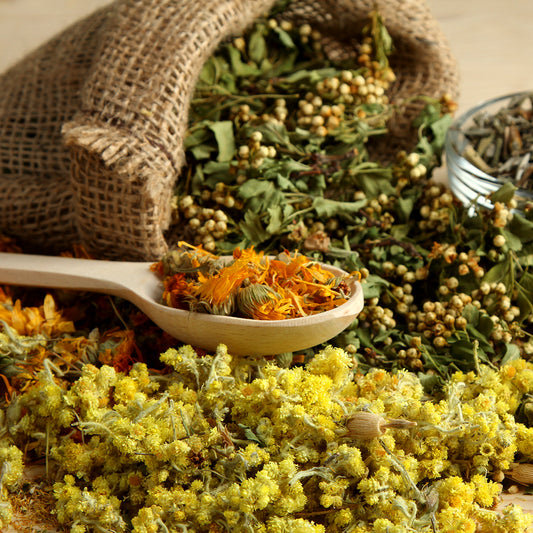
Many folks complain that herbal remedies do not work. But, to make good quality herbal products you must start with the best quality herbs!
Read Post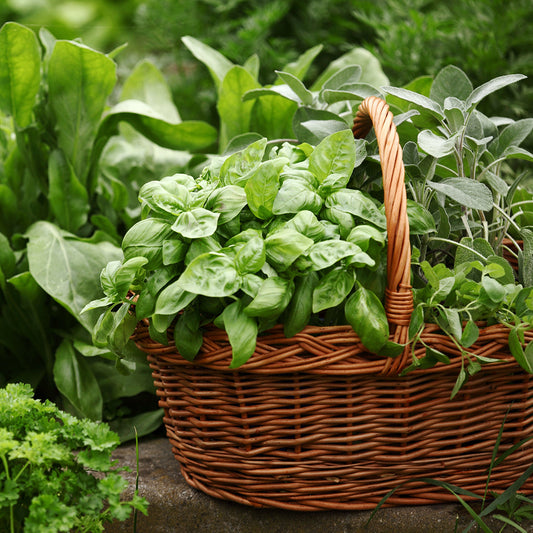
People have harnessed the power and simplicity of nature's plants for centuries to enhance the skin’s appearance, help treat skin problems, and improve skin quality.
Read Post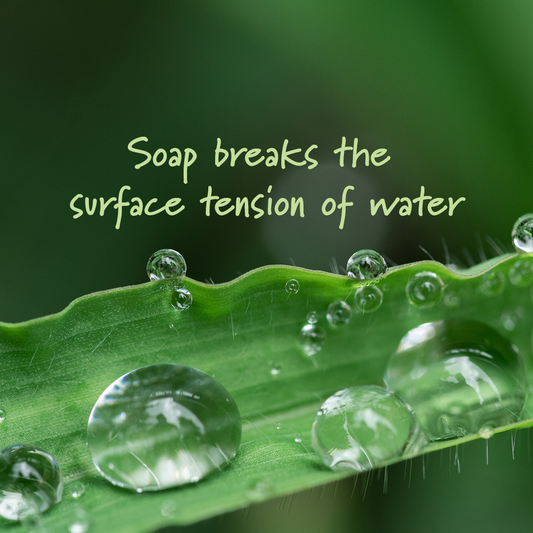
Soap cleans because it can mix with both water and with oil. When greasy dirt is mixed with soapy water, the oil tucked into the center of a tiny micelle cluster and then both are rinsed away.
Read Post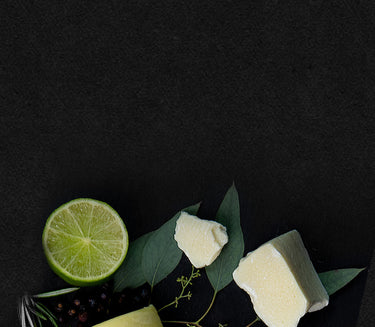

People with severe allergies—please note: If you have severe anaphylactic-type reactions to ANY of the ingredients in ANY of our products, please do not buy our products. We have dedicated soap rooms and product rooms that are kept meticulously clean, but we cannot guarantee against possible cross-contamination of individual ingredients.
Chagrin Valley Soap & Craft is not responsible for any individual reaction to any particular ingredient. Each product description on our website includes a complete list of ingredients. People with sensitivities to any listed ingredient should not use the product. In case you are in doubt always try an allergy patch test and if at any time irritation occurs, discontinue use of the product.
The content and information on this website, provided by The Chagrin Valley Soap & Salve Company, is for educational purposes only and is in no way intended and should not be construed as medical advice to diagnose, treat, cure, or prevent any disease or health condition. The information regarding folklore or health-related benefits of certain ingredients is for educational purposes only. The information provided is not intended to prescribe or be taken as medical advice.
The information provided is not meant to substitute the advice provided by your personal physician or other medical professionals. Do not use the information found on this website to self-diagnose any medical conditions or treat any health problems or diseases. If you have medical concerns regarding yourself or your family you should seek the advice of qualified, licensed health professionals. Never disregard professional medical advice or delay in seeking it because of something you have read on this website.
This information has not been evaluated by the Food and Drug Administration. This notice is required by the Federal Food, Drug and Cosmetic Act.
Read our Full Medical Disclaimer.